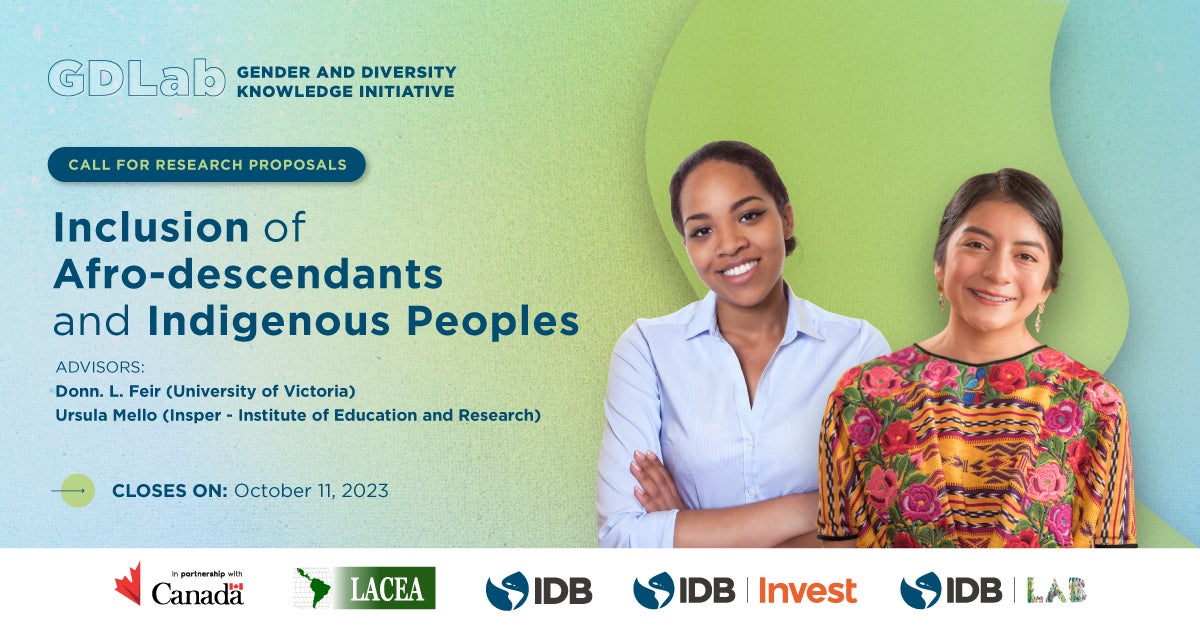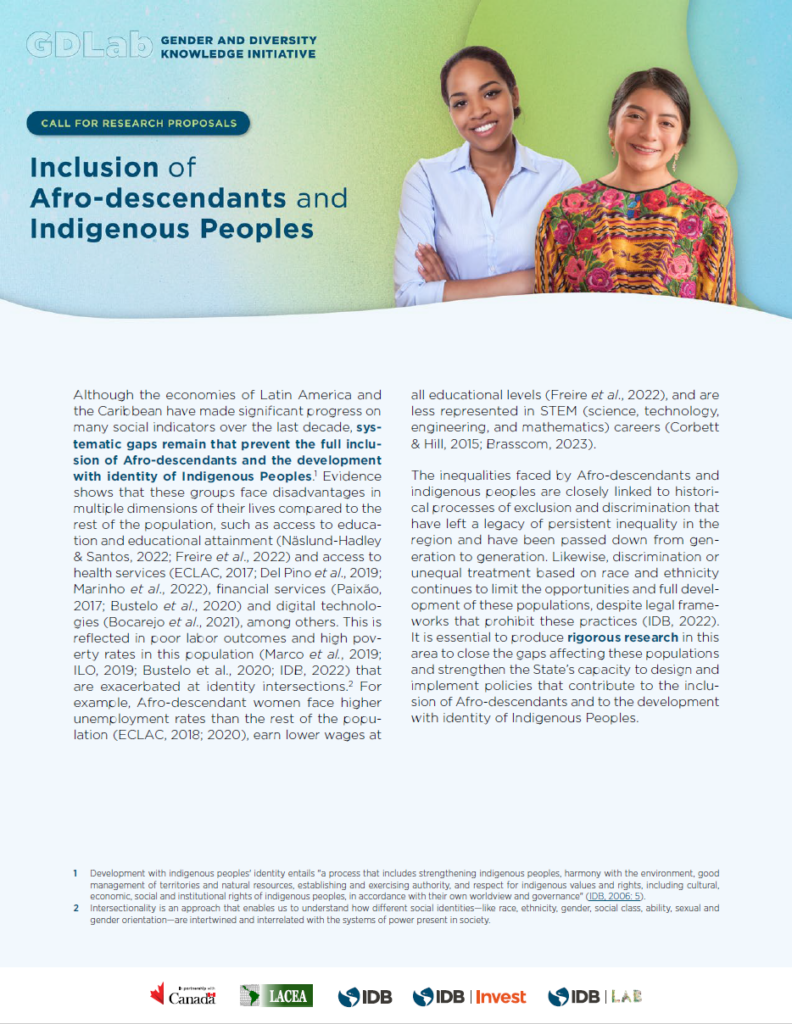What policies are effective in reducing ethnic-racial gaps? How can we prevent and discourage unequal treatment based on race and ethnicity? What challenges do institutions face in closing the gaps experienced by Afro-descendants and Indigenous Peoples? GDLab’s new call for research proposals aims to generate academic studies that provide solid evidence to answer these questions.
More Evidence to Advance Racial and Ethnic Equity
Despite the progress made by economies in Latin America and the Caribbean, ethnic-racial gaps persist in various dimensions. When we talk about ethnic-racial gaps, we refer to a series of social, economic, and health access inequalities, among other barriers that Afro-descendant and Indigenous populations have historically experienced. These represent significant challenges to the well-being and inclusion of Afro-descendant individuals and Indigenous Peoples.
Regarding health, for instance, available data for some countries in the region show that Afro-descendants and Indigenous Peoples have higher maternal and infant mortality rates than the rest of the population. Likewise, such gaps are evident in secondary school completion rates, access to productive credit, and access to financial services.
As a result, these inequalities are reflected in poor labor outcomes and high levels of poverty. These disparities are magnified when race and ethnicity intersect with other identities such as gender, age, or migratory status. For example, Afro-descendant women have lower levels of formal employment, face higher unemployment odds, and earn less compared to the rest of the population (including Afro-descendant men). Similarly, data shows that indigenous women are overrepresented in informal and low-quality jobs.
Why do we need more evidence?
To move towards equity, solid evidence supporting policy decision-making is essential. In recent years, various types of measures have been implemented to address ethnic-racial gaps and reduce biases against these populations. However, in many cases, the effectiveness and replicability of these efforts have not been rigorously studied. There is also a lack of high-quality knowledge generation in other areas, such as evidence on the effectiveness of intercultural health, education, and governance models in rural and urban areas, among others.
Generating rigorous research is key to addressing these issues. Also, to identify solutions that promote the inclusion of Afro-descendants and the development with identity of Indigenous Peoples.
Join the new GDLab call for proposals!
GDLab is launching a new call for research proposals to fund academic studies that provide solid evidence about effective policies to close ethnic-racial gaps in the region’s countries. Specifically, this edition seeks quantitative and rigorous studies that:
- Evaluate interventions that contribute to addressing the gaps faced by Afro-descendant individuals and Indigenous Peoples.
- Evaluate preventive interventions or interventions that discourage unequal treatment based on race and ethnicity.
- Provide causal evidence about institutional limitations in the region’s countries for designing and implementing policies that promote the inclusion and well-being of Afro-descendant individuals, as well as the well-being and identity-driven development of Indigenous Peoples.
The call is open to both independent researchers and research teams formed by entities from the public or private sector, universities, research centers, as well as specialists associated with the IDB Group and external teams. Proposals will be evaluated by the Scientific Committee comprised of specialists from the IDB Group and invited external advisors, Donn. L. Feir (University of Victoria) and Ursula Mello (Insper – Institute of Education and Research).
Refer to the call’s informational brochure for more details about this call and the application process. The deadline for submitting a proposal is October 11, 2023.
Don’t miss the opportunity!



Leave a Reply